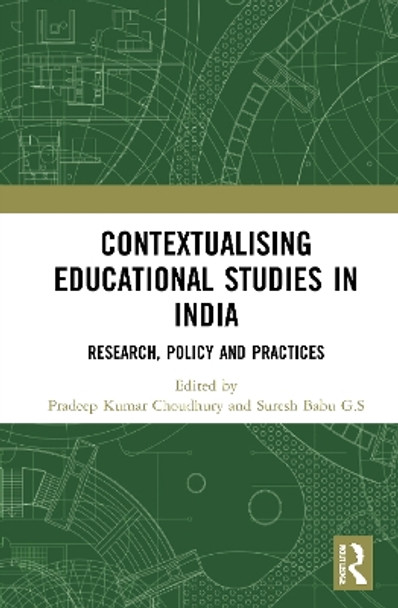Description
This volume presents an interdisciplinary framework to map out contemporary educational studies in India. Based on conceptual tools, quantitative methods and ethnographic accounts drawn from extensive fieldwork, it addresses emerging discourses on educational policies, their operation in the everyday functioning of institutions and actual practices in teaching and learning. Individual chapters discuss the intersectionality in the current educational system of region, gender, class, caste and minorities.
With comparative perspectives and case studies from across states, including under-studied rural and urban regions of India, the book explores a wide range of issues affecting the educational system, including socioeconomic and gender inequalities; the educational status of tribal settlements in the hinterlands and their respective urban areas; the marginalisation of minorities; challenges in accessing educational avenues and choices; and the model for imparting vocational education and training. It navigates complex sites of discrimination and exclusion in the institutional spaces of the educational system and assesses the consequences of market dynamics and ideological undercurrents. Presenting first-hand information from the field, it evaluates educational policies, practices and research; investigates challenges and failures; provides suggestions and fosters critical thinking for a knowledge society.
The findings in this book will be of interest to researchers, scholars and teachers of education, economics, sociology, urban education and the politics of education, as well as of public policy, governance and development studies. It will also be useful to research institutions, policymakers, educationists, social scientists, education professionals, and governmental and non-governmental bodies working on education.
About the Author
Pradeep Kumar Choudhury teaches at the Zakir Husain Centre for Educational Studies, School of Social Sciences, Jawaharlal Nehru University, India. Previously, he worked at the Institute for Studies in Industrial Development and Public Health Foundation of India. His research covers applied development economics, especially issues related to education, health and labour. Currently, he is collaborating with Delhi Research Implementation and Innovation (DRIIV) cluster ('Effective Education' vertical), coordinated by IIT Delhi, and sponsored by the Department of Science and Technology, Government of India. He recently completed an international collaborative study with the Freeman Spogli Institute for International Studies, Stanford University, USA, that assesses and improves student learning in engineering and higher education in a comparative international perspective.
Suresh Babu G.S teaches at the Zakir Husain Centre for Educational Studies, School of Social Sciences, Jawaharlal Nehru University, India. Before this, he was on faculty at the University of Jammu. His research focuses on the postcolonial debates of subaltern communities in India and investigates the role of education in shaping the cultural politics. He edited Education and the Public Sphere: Exploring the Structures of Mediation in Post-Colonial India (Routledge 2019).
Reviews
'Educational research in India focuses, very often, on improving pedagogical practices. This volume attempts to link educational processes and progress with broader issues of economic and social development from comparative and interdisciplinary perspectives. The discussions on equity and inclusion, gender, marginalisation and employability contextualise the issues to be prioritised for education policy and research in India. It brings together young researchers and their critical analyses and understanding, and the volume makes a good contribution to deepen our understanding of the discourses on educational research in India.'
N.V. Varghese, Vice-Chancellor, National Institute of Educational Planning and Administration, New Delhi, India
'When young researchers come together, look at the landscape of education in India with heightened critical consciousness and empirical details, and raise sociologically relevant questions, I see a possibility, or a language of hope. Yes, this edited volume expands our horizon, and makes us see the prevalent practice of education while being deeply aware of the dynamics of caste and patriarchy, or urban marginalities and regional variations. A book of this kind is bound to activate the socio-political and pedagogic imagination of educationists, teachers and researchers.'
Avijit Pathak, Professor of Sociology, Jawaharlal Nehru University, New Delhi, India
Book Information
ISBN 9780367519698
Author Pradeep Kumar Choudhury
Format Hardback
Page Count 228
Imprint Routledge India
Publisher Taylor & Francis Ltd
Weight(grams) 480g








